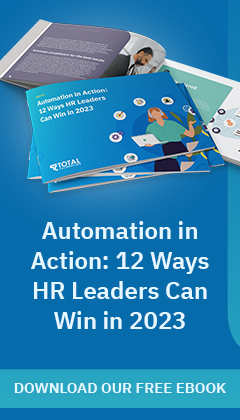Managing a workforce involves several responsibilities, ranging from recruitment, onboarding, offboarding, performance management, learning management plus time and attendance. Taking care of each separately is counterproductive and not cost-effective. A human resource management system (HRMS) is a software platform that integrates all the tools and processes used by HR professionals to get all of these tasks done in a more effortless system.
How does an HRMS help your business?
An HRMS combines and integrates all HR responsibilities into one system, saving time and money and increasing the efficiency of HR management. For instance, an HRMS like Lanteria HRIS can:
- store all HR data in one place,
- facilitate easily manageable leave policies,
- allow complete control over compensations,
- streamline recruiting and onboarding,
- enable digital performance evaluation systems,
- enable collaborative learning management,
- create efficient career and succession planning.
Let’s take a closer look at the HR processes that an HRMS improves and accelerates.
Recruitment
An HRMS can unify and automate the entire recruitment process to help you hire the right people. You can easily create and post new job openings on various recruitment portals. Use it to store applicant data, collaborate and keep up with applicants, and then schedule their interviews. Applicants can likewise monitor their status and progress through a self-service portal. And finally, it can be used to generate and store offers for candidates to access.
Performance management
It often takes a lot of time and effort to collect performance data on every employee. Using an HRMS, a company can customise performance assessments to their preference. For instance, they can get 360-degree feedback in real time through constant monitoring of employee performance data.
An HRMS streamlines performance appraisal, reporting, and evaluation of employee progress, goals, and benchmarks, which consequently increases employee productivity and allows deeper insights into compensation, rewards, and goal setting.
Onboarding and offboarding
With an HRMS, onboarding becomes more efficient, facilitating better control of the onboarding process, making each new hire’s role clear, allowing HR personnel to monitor newcomer progress, integrating data into a single database, and helping newcomers feel connected. The whole onboarding process can be done within minutes.
An HRMS can will automate specific offboarding processes like revoking system access and login credentials, sending required documents such as final pay summaries and certificates of services, sending automatic notifications to former employee’s team or department, and delivering customised exit surveys. It can also track every contract, document, and policy signed throughout the employment of an exiting employee to avoid any compliance issues.
Training and learning
The training features of an HRMS plan, deliver, and track training programs that help employees develop skills and competencies. It will help HR personnel organise targeted training curricula, grading, records, history, and schedules.
Time and attendance
An HRMS can help HR personnel set up company-wide leave and absence policies and track work hours, overtime, paid time off, sick leave, and vacation requests accurately. This helps correctly compensate employees. It should also allow your workers to time in and out, submit hours, and track attendance or overtime on their mobile devices through an HRMS mobile app.
Employee profiles
An HRMS can store employee data in a centralised database that can be accessed by different departments. It will be able to sync employees’ personal information and other data securely across multiple systems. It will also streamline documentation and filing, thereby reducing the time spent on administrative work once devoted to updating employee files or documenting employee information.
Self-service portals
Some HRMS like Lanteria HR provide employee and manager self service portals, where they can have access to personal records, leave balances, time off requests, and even company-wide information. Some allow employees to manage their availability for teamwork and view their schedules remotely. These portals also act as learning and collaboration spaces, where employees can manage their own development and availability to work with others.
Partnering with an expert on HR solutions will speed up the process and raise your chances of success. At Total Calibration, we recommend Lanteria HR, a multi-awarded HRMS that can be customised to your company’s unique business processes and integrated into your company’s existing systems. Contact us today and find more about Lanteria HR.


